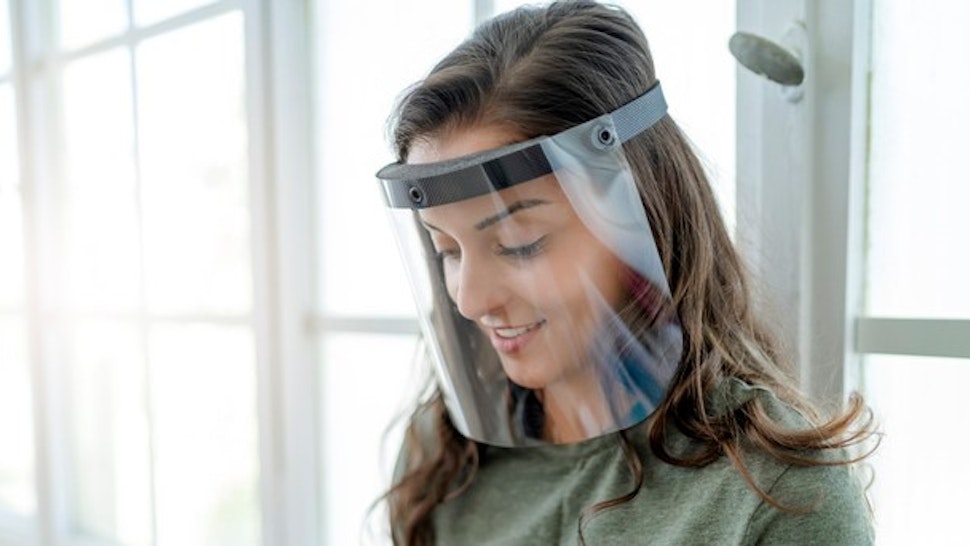Louis Vuitton Set To Sell A Luxury Face Shield — For Nearly $1,000

COVID-19 is going high fashion.
The luxury retailer Louis Vuitton (LV) is launching a new plastic face shield that will retail for $961, the New York Post reports. The shield will go on sale Oct. 30 at select LV locations as part of the French brand’s 2021 Cruise Collection.In a statement, Louis Vuitton called the shield “an eye-catching headpiece, both stylish and protective.”
CNN offered this description: “The ‘eye-catching’ LV Shield transitions from clear to dark in sunlight, protecting wearers from the sun. It also features golden studs engraved with Louis Vuitton’s brand name and an elastic, monogrammed headband. The visor can also be worn upward as a classic peaked cap, according to the label.”
LV isn’t the only retailer offering high-end COVID-19 wear. Burberry recently announced a new line of face masks that will sell for about $115, and Off-White also has masks that run about $100, TMZ reports. Balenciaga and Dolce & Gabbana, too, will offer face coverings in similar price ranges.
But the reviews aren’t so good.
“This is a ridiculously high-priced logo-covered item for rich people,” writes Shannon Palus in a Slate piece. “A supercheap face shield would probably protect you just as well from floaty bits of coronavirus as this fancy one.”
And the Centers for Disease Control and Prevention (CDC) still cautions on face shields that “effectiveness is unknown at this time.” Face masks are preferable, the CDC notes.
From the CDC website:
A face shield is primarily used for eye protection for the person wearing it. At this time, it is not known what level of protection a face shield provides to people nearby from the spray of respiratory droplets from the wearer. There is currently not enough evidence to support the effectiveness of face shields for source control. Therefore, CDC does not currently recommend use of face shields as a substitute for masks.However, wearing a mask may not be feasible in every situation for some people for example, people who are deaf or hard of hearing—or those who care for or interact with a person who is hearing impaired. Here are some considerations for individuals who must wear a face shield instead of a mask: Although evidence on face shields is limited, the available data suggest that the following face shields may provide better source control than others:
- Face shields that wrap around the sides of the wearer’s face and extend below the chin.
- Hooded face shields.
Face shield wearers should wash their hands before and after removing the face shield and avoid touching their eyes, nose and mouth when removing it. Disposable face shields should only be worn for a single use and disposed of according to manufacturer instructions. Reusable face shields should be cleaned and disinfected after each use according to manufacturer instructions or by following CDC face shield cleaning instructions.
Neck gaiters are also not effective, experts say. A group of researchers from Duke University recently conducted a study on the effectiveness of masks, ranging from hospital-grade N95 respirators to simple bandanas. “Of the 14 masks and other coverings tested, the study found that some easily accessible cotton cloth masks are about as effective as standard surgical masks, while popular alternatives such as neck gaiters made of thin, stretchy material may be worse than not wearing a mask at all,” The Washington Post reported.
No comments: